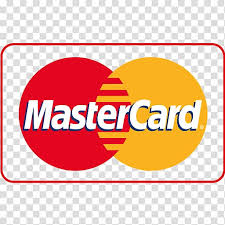Rummy is a widely played skill-based card game enjoyed by millions. At RummyKhiladi, we offer engaging rummy variants like Points Rummy, Pool Rummy, and Deals Rummy. This guide provides an in-depth understanding of rummy rules, gameplay, scoring, and strategies to help players excel in every variant.

How to Play Rummy
1. Basic Rules of Rummy
1.1 Objective of the game:
The goal is to arrange all 13 cards in your hand into valid sequences and/or sets. A valid declaration must include at least one pure sequence (a sequence formed without a Joker).
Once you have a valid hand, you can declare to win the game.
1.2 Card combinations:
Sequence:
A sequence is three or more consecutive cards of the same suit. Example: 4♣, 5♣, 6♣. Sequences can be pure or impure (using a Joker).
Set:
A set consists of three or four cards of the same rank but different suits. Example: 7♦, 7♣, 7♥.
1.3 Use of Jokers:
Jokers can substitute for any card to form sequences or sets, but they cannot form a pure sequence.
There are two types of Jokers: Wild Joker (a randomly selected card from the deck) and Printed Joker.
1.4 Game progression:
Players draw and discard cards in turns, aiming to create valid combinations while minimizing points in hand.
The game ends when a player makes a valid declaration.
2. Points Rummy
2.1 Overview:
Points Rummy is a quick variant where each point carries a pre-decided monetary value. Players compete to score the lowest points, and the winner earns the sum of points lost by others.
2.2 Scoring system:
Card values:
Face cards (K, Q, J, A) are worth 10 points each, numeric cards carry their face value, and Jokers are worth zero points.
Maximum points:
The maximum penalty for an invalid declaration is 80 points.
Winning formula:
Winner’s earnings = (Sum of opponents’ points) x (Point value).
2.3 Strategies for Points Rummy:
Focus on forming a pure sequence early to reduce your hand's penalty risk.
Discard high-point cards that are unlikely to form combinations.
3. Pool Rummy
3.1 Overview:
In Pool Rummy, players are eliminated upon exceeding a pre-decided score limit (101 or 201 points). The last remaining player wins the prize pool.
3.2 Scoring and elimination:
Score calculation:
Points are calculated based on the ungrouped cards in hand at the end of each round.
Elimination rule:
Players exceeding the set score limit (e.g., 101 or 201) are eliminated from the game.
3.3 Strategies for Pool Rummy:
Play conservatively in the initial rounds to avoid accumulating high points.
Observe opponents’ discard patterns to anticipate their strategies.
4. Deals Rummy
4.1 Overview:
Deals Rummy is played over a fixed number of deals. Each player starts with an equal number of chips, and the player with the most chips at the end wins.
4.2 Scoring system:
The winner earns chips equal to the sum of points lost by opponents, multiplied by the pre-decided chip value.
At the end of all deals, the player with the highest chip count is declared the winner.
4.3 Strategies for Deals Rummy:
Focus on consistent scoring across all deals to maintain a lead.
Analyze chip standings to decide when to play aggressively or defensively.
5. Advanced Gameplay Tips
5.1 Observing opponents:
Pay attention to the cards your opponents pick and discard to predict their combinations.
5.2 Managing high-value cards:
Discard high-value cards early unless they can form sequences or sets.
5.3 Using Jokers effectively:
Reserve Jokers for completing sets or sequences that are harder to form.
6. Rules for Valid Declaration
6.1 Pure sequence requirement:
A declaration must include at least one pure sequence (e.g., 2♥, 3♥, 4♥).
6.2 Invalid declaration penalty:
Declaring without valid combinations results in the maximum penalty points (e.g., 80 in Points Rummy).
6.3 Declaration process:
Arrange your cards into sequences and sets, then click the 'Declare' button. Ensure all rules are met before declaring.
7. Responsible Gaming
7.1 Tips for responsible gaming:
Set daily or weekly limits for your gameplay to avoid overspending.
Take breaks and avoid prolonged gaming sessions.
7.2 Self-exclusion and support:
Use self-exclusion tools if you need a break. Reach out to our support team for assistance with account restrictions.
8. Contact Us
8.1 Support channels:
Email:
Address:
Springhouse Coworking, Golf Course Road, Sector-43, Gurgaon, Haryana 122009






